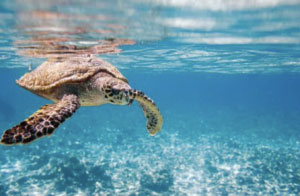Ethical Tourism
Travel responsibly by following some simple steps
DEFINING ETHICAL TOURISM
Following ethical principles when traveling the world is not just the right thing to do, it's our ethical responsibility to do it.

World Travel
– Take shortest route to destination whenever possible. Offset your carbon footprint.
– Research your tour operator to ensure they follow an eco-conscious policy.
– Seek out eco-friendly accommodations or AirBnB.
– Head signs and don’t trespass. Stay on marked paths.
– Never deface a monument or sacred place.
– Ask for permission to take a local people’s photo.
– Only go to ethical sanctuaries (see our volunteer page).
– Don’t buy trinkets with animals parts.
– Reduce your use of plastics and do not litter.
– Use public transportation when possible. Rent bikes or walk.
– Bring your own water container.
– Be courteous of nature⠀
– Be a mindful photographer
– Avoid flying whenever possible⠀

Wildlife and flora
– Never touch or feed wildlife.
– Never support any form of trophy hunting.
– Never pay to have a picture taken with a captive wild animal.
– Do not buy any ivory or horn items. Only buy animal-free gifts or products.
– Don’t participate in tours that promote animal cruelty like dolphin shows, elephant rides.
– Don’t encourage your driver to break the park rules so you can get a better photo.
– Do your homework before going to a sanctuary. Ensure that they meet all ethical standards.
– Never attend paying shows that feature wild animals doing tricks for your entertainment.
– Be courteous of all nature. ⠀
– Don’t harm, harass or scare wild animals.
– Notify your guide or eco lodge if you find any harmed, trapped or ensnared animal.
– Don’t pick any plants from foreign places.

Oceans / Beach
– Only wear reef-safe sunscreen. Better yet, wear sunguard shirts to reduce the need for sunscreen.
– Don’t take from the ocean. Leave shells on the beach and coral in the ocean.
– Never swim with captive dolphins or other captive wildlife.
– Never attend shows with ocean mammals such as orcas, seals or dolphins.
– Don’t step on coral, which is very fragile.
– Never harass sea life, while scuba diving or walking on the beach.
– Call the lifeguard or local wildlife center if you find an injured animal.
– If situation is urgent (beached dolphins, or animals caught in fishing net) handle only with extreme care. It is always better to call professional wildlife rangers before engaging in a potentially dangerous situation.
– Pick up trash on the beach, set an example of being a good tourist.
– Don’t buy items that feature animal parts.

Planning your trip
– Learn all you can about local laws on how to respect to wildlife.
– Consider traveling during low or off season.
– Find the most direct route to travel, if you must fly to your destination.
– Consider a walking or biking tour. It will allow you to see more of the countryside and the road less traveled.
– Learn about the wildlife and the flora in the region you will be visiting.
– Search for tour operators and lodges that are eco-conscious and deeply care about their impact on the environment.
– Research sanctuaries where you can volunteer. Bring an extra suitcase with goods for the local people. (ask the lodge what is needed in the area, don’t assume)
– Consider donating to a carbon offset program.
– Bring a refillable water bottle.
– Pack biodegradable toiletries so you don’t harm the environment.
Why It Matters
Keep wildlife safe from harm
You don't want to be the reason that an animal got hurt or died because of your lack of ethical behavior.
Maintain a pristine environment
You will want to leave the place you visited as pristine (or better) than how you found it. Set the example.
Protect for the next generation
You want to ensure that your children will also be able to experience the wildlife like you did.

Sign up today to our monthly newsletter and learn how to be an eco-conscious traveler


